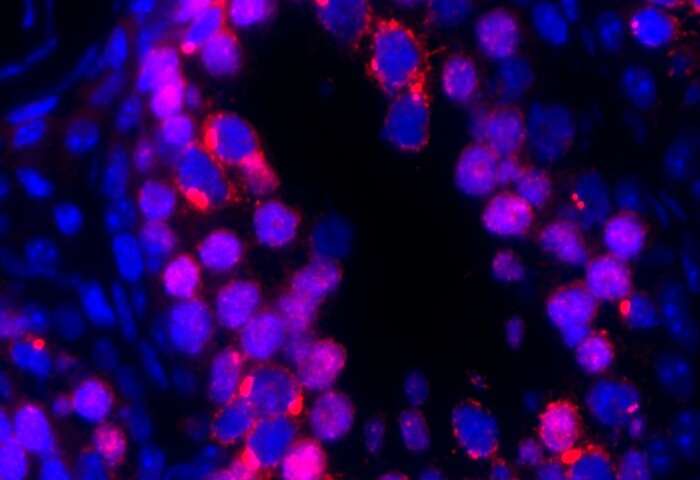New insights into an elusive process that protects developing sperm cells from damage in growing embryos, sheds light on how genetic information passes down, uninterrupted, through generations.
The study identified a protein, known as SPOCD1, which plays a key role in protecting the early-stage precursors to sperm, known as germ cells, from damage in a developing embryo.
During their development, germ cells undergo a reprogramming process that leaves them vulnerable to rogue genes, known as jumping genes, which can damage their DNA and lead to infertility.
“Reprogramming is essential for correct germ cell development in embryos, but leaves them temporarily vulnerable to a subset their own genes, known as jumping genes, that threaten genetic chaos.” explains lead author of the study, Professor Dónal O’Carroll at the University of Edinburgh.
Evading such damage allows germ cells to become the pool of self-renewing cells that produce healthy sperm throughout adult life.
Germ cells are the vital link between generations but they need unique strategies to protect the genetic information they carry, so it can be passed successfully from parents to their offspring.
The team, led by University of Edinburgh researchers, studied the development of germ cells in mouse embryos to understand the biological pathway that protects them from jumping genes.
The study is the first to reveal the role of the SPOCD1 protein, which helps to recruit protective chemical tags, known as DNA methylations, to disable jumping genes.
Scientists have long puzzled over…



